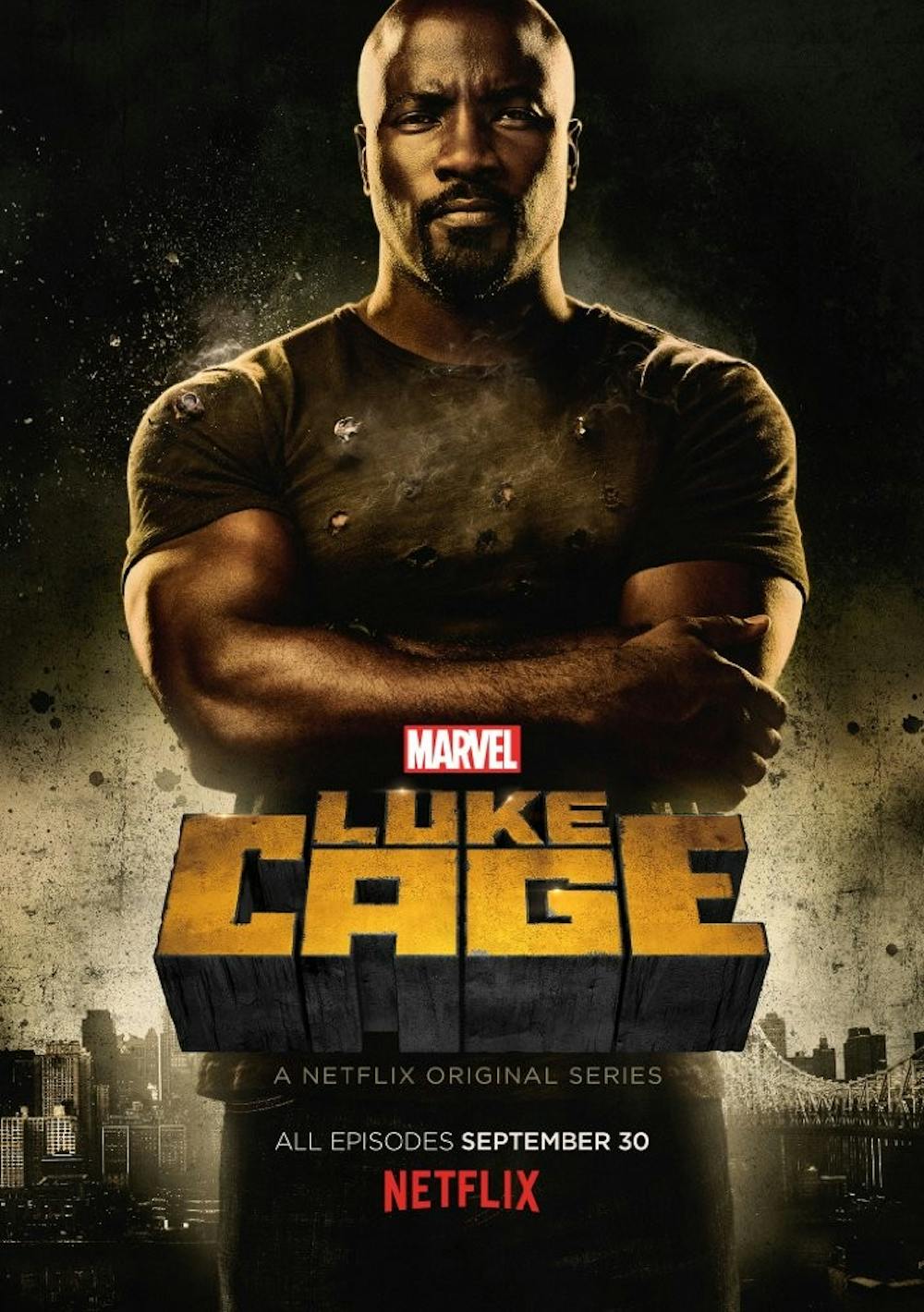One powerful but simple secret allows Marvel Studios to stay in the forefront of modern entertainment — its larger than life stories appeal to a wide variety of audiences. While Marvel’s blockbuster films are known for having a more accessible touch, their dark, violent Netflix TV shows defy the notion that Marvel is a family-friendly company. Established in the hit show “Daredevil” and carried on in “Jessica Jones,” Marvel’s latest show on Netflix, “Luke Cage,” continues the tradition of exploring a more grounded take on the Marvel Cinematic Universe.
Amidst the many recent gun-related fatalities of black men, there isn’t a better moment for a show starring the super-strength imbued Luke Cage (Mike Colter). As stated by Clifford “Method Man” Smith, one of the show’s guest stars, “There’s something powerful about seeing a black man who’s bulletproof and unafraid.” While this effective, inspiring imagery rings loud throughout the season, “Luke Cage” fails to engage its viewers in its second half, resorting to contrived plot devices, which bog down the show all the way to the finale.
Colter’s charismatic performance as Cage is a treat, especially his moving acts of heroism throughout the famed neighborhood of Harlem. Pitted against an equally engaging villain — the crime boss known as Cottonmouth (Mahershala Ali) — Cage works to topple the criminal empires of Harlem while trying to protect those closest to him. Also, with other complex characters like hardened Detective Misty Knight (Simone Missick) and shady Councilwoman Mariah Dillard (Alfre Woodard), viewers are given plenty of differing perspectives on the story.
One of the show’s greatest strengths is its ability to perfectly emulate one of the most well-known representations of black culture in the United States — Harlem. From the slang-filled dialogue to the Blaxploitation era-inspired music to the diverse casting choices, Harlem is perfectly represented in a way which fits into greater Marvel Cinematic Universe.
However, “Luke Cage” would have benefited greatly from a shorter season, with perhaps half the number of episodes actually ordered. Halfway into the season, the dialogue can feel stale and forced, existing only to artificially extend each episode’s runtime. Additionally, the show begins to stray away from its realistic tone, introducing increasingly strange plot elements and providing an excuse to break Cage’s virtually unbreakable skin.
“Luke Cage” is like a big bag of popcorn: While it starts off very satisfying, the enjoyment slowly morphs into mild annoyance. However, as a generally compelling show, which suffers from some admittedly frustrating pacing issues, “Luke Cage” is a must-watch for fans of previous Marvel Netflix shows.





